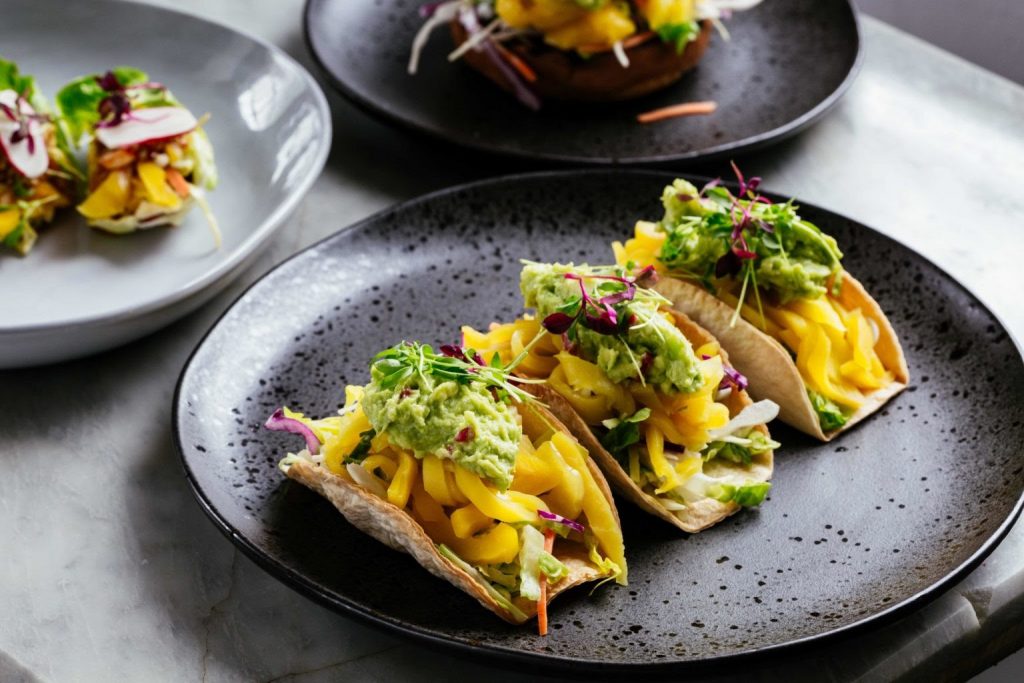Around 1-10% of adults and children in the UK have food hypersensitivity. That is potentially 1 in 10 of your guests who could have food allergies.
For those people, catered events are an awkward and anxious experience. Let’s put a stop to that and make sure your event is what it should be – a culinary joy.
This article will show you that food allergies do not have to be such a chore, moreover, with just a little attention and collaboration with your catering partners. They’re just a part of good event planning.
It’s All in the Details
As in any walk of life, there is no substitute for being well prepared. Spontaneity is for artists.
When you’re planning a catered event, there’s no such thing as too much info. The execution of your event will be all the more streamlined and stress-free for it.
Ask your attendees and clients in advance of any food sensitivities they have. Go further than boilerplate questions like vegan, vegetarian, kosher, and so on, be anal about it. Be as precise.
Ask your guests if they also have allergies to gluten-free, nuts, soy, eggs, dairy, wheat, shellfish, etc. Go one step further with an ‘other’ option with space for folk to surprise you with allergies you have never heard of.
Likewise, when hunting down the perfect catering partner, probe them for their knowledge and versatility regarding special dietary catering.
Communication, Communication, Communication
In this modern world, we receive too many emails, texts, WhatsApps, calls and everything else. Nevertheless, good communication costs nothing, and it’s better safe than sorry.
It is as simple as asking guests about particular needs and acknowledging them. Let them know how and when you’ll be accommodating those needs. Your guest will feel all the more well looked after.
A healthy channel of communication with your caterers is also key to a flawlessly executed event. Make sure you get confirmation that they have received your specific dietary requirements and what actions they’re taking to satisfy them.
Work towards a manageable meal plan that you both agree on. Most caterers are versatile and can accommodate you. It’s all part of the conversation.
Avoiding Cross-Contamination is Crucial
Labels come in handy for buffet-style catering. They will give guests agency and peace of mind when plating up. Your team could also work on menus with specific ingredients and dietary needs for sit-down affairs.
What we are largely looking out for here is cross-contamination. Always set up your venue with separate stations for dietary specific food preparation and cooking.
If this is not possible, then proper cleaning of equipment and hands is vital. We know that chefs work in a fast-paced, demanding, and sometimes stressful jobs. Even still, we know they are professionals and that rinsing hands and pans underwater will not cut it when it comes to specific dietary requirements.
Knowledgeable Staff is a Recipe for Success
Your staff working the event should always know what the food is, what is in it, and the preparation methods.
Guests with food allergies or coeliac disease could get deathly ill if someone used the same cutting board or knife for the bread they did for the fish or peanut butter pie.
Ensuring this last detail is taken care of won’t just protect those against allergic reactions. It increases the quality of your service in general.
In the guest’s eyes, knowledgeable serving staff inspires confidence in the food itself. Hopefully, it will make the servers more confident in what they are doing and thereby enjoy the occasion more.
Wrapping Up
In conclusion, your event will be allergy-proof with some minor checks and will make 1-10% of previously neglected guests feel very well looked after.
Now that you have got to grips with a fundamental component of event catering, how about
learning about one of the industry’s hottest trends: pop-up dining experiences.
